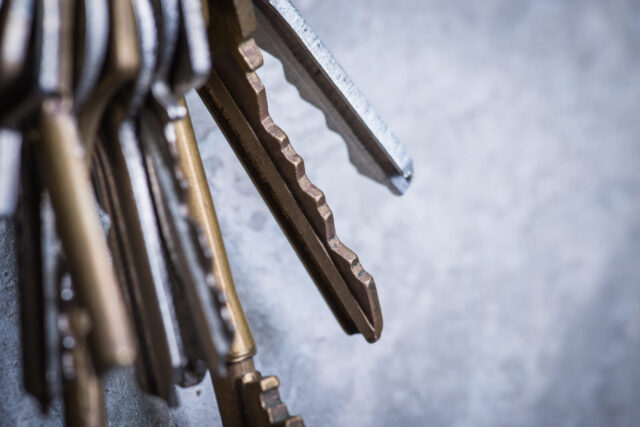
Locks are the unsung heroes in our daily lives, quietly ensuring our safety and security. However, these mechanical devices are not infallible and require regular maintenance to function at their best. Over time, the relentless cycle of locking and unlocking, coupled with exposure to the elements, can take a toll on their performance. Dirt, dust, and grime can accumulate, and metal components can wear down, leading to difficulties in operation or, worse, failure to lock properly. By maintaining your locks regularly, you not only ensure their smooth operation but also extend their lifespan, saving you the inconvenience and cost of premature replacements. In essence, taking care of your locks is akin to safeguarding your personal sanctuary.
Understanding the Inevitability of Lock Wear and Tear
Locks are subjected to a slow but steady process of wear and tear. Each turn of the key causes minuscule abrasions to the delicate inner workings of the lock. Over time, these tiny damages accumulate, manifesting as stiffness, difficulty in turning the key, or even complete failure. Environmental factors like moisture, dust, and temperature changes can accelerate this wear. For instance, moisture can lead to rust, while dust can clog the internal mechanisms. Temperature fluctuations cause metal components to expand and contract, further stressing the lock. Recognizing these signs of wear and addressing them in their infancy is critical to maintaining lock health and security.
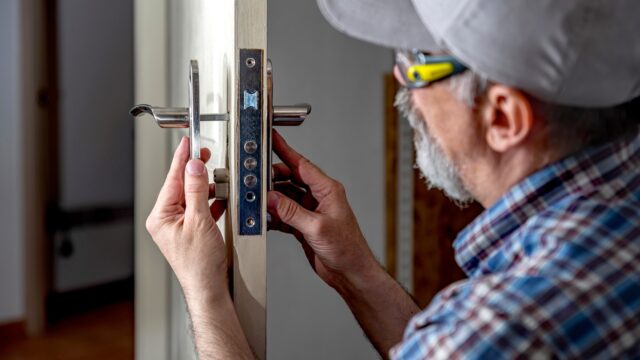
Regular Cleaning
The importance of regular cleaning in maintaining the health of your locks cannot be overstated. Over time, dust and other particles can find their way into the smallest crevices of your locks, leading to jamming and stiffness. A routine cleaning regime, using mild cleaners and soft cloths for the exterior, can keep these issues at bay. For the interior, a gentle blast of compressed air can work wonders in dislodging hidden dirt and debris. This simple practice can significantly extend the life of your locks, ensuring they remain reliable and effective in securing your home. If you need help cleaning and maintaining your lock, locksmiths such as those at rekeying service Beverly Hills can help you.
The Critical Role of Lubrication in Ensuring Smooth Lock Operation
Lubrication is vital in maintaining the functionality of any mechanical device, and locks are no exception. The right lubricant ensures that the internal components of a lock move smoothly against each other, reducing wear and tear. However, it’s essential to choose the correct type of lubricant. Petroleum-based lubricants, while common, can attract and retain dirt, leading to a buildup that can gum up the lock mechanism. Instead, dry lubricants such as graphite powder or Teflon-based products are recommended. They provide the necessary lubrication without the risk of attracting more dirt. Remember, the key to effective lubrication is moderation – too much can be as bad as too little.
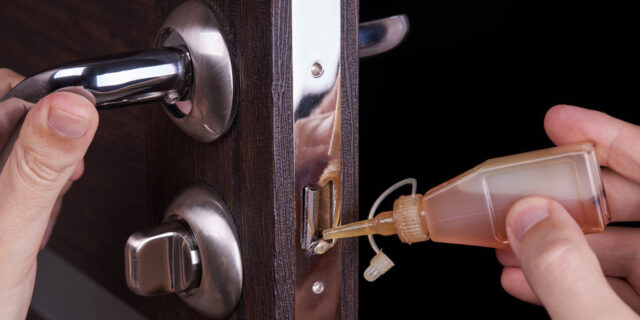
Combatting Rust and Corrosion
Metal locks, especially those exposed to the elements, are prone to rust and corrosion. This not only affects their appearance but can severely hamper their function. At the first sign of rust, action should be taken to remove it, using appropriate rust remover products. If the rust is superficial, this might suffice. However, in cases of severe corrosion, the expertise of a professional locksmith might be necessary. They can assess the extent of the damage and recommend the best course of action, be it thorough cleaning, part replacements, or in extreme cases, a complete lock replacement.
Understanding and Mitigating the Effects of Temperature on Locks
Temperature plays a more significant role in the performance of locks than one might assume. In colder climates, locks can freeze, making them difficult to operate, while in warmer conditions, metal components can expand, leading to sticking and jamming. Being aware of these potential issues and adapting your maintenance routine accordingly can prevent many common problems. For instance, during winter, using a lock de-icer can prevent freezing, while in summer, ensuring that your locks are clean and lubricated can mitigate the effects of expansion.
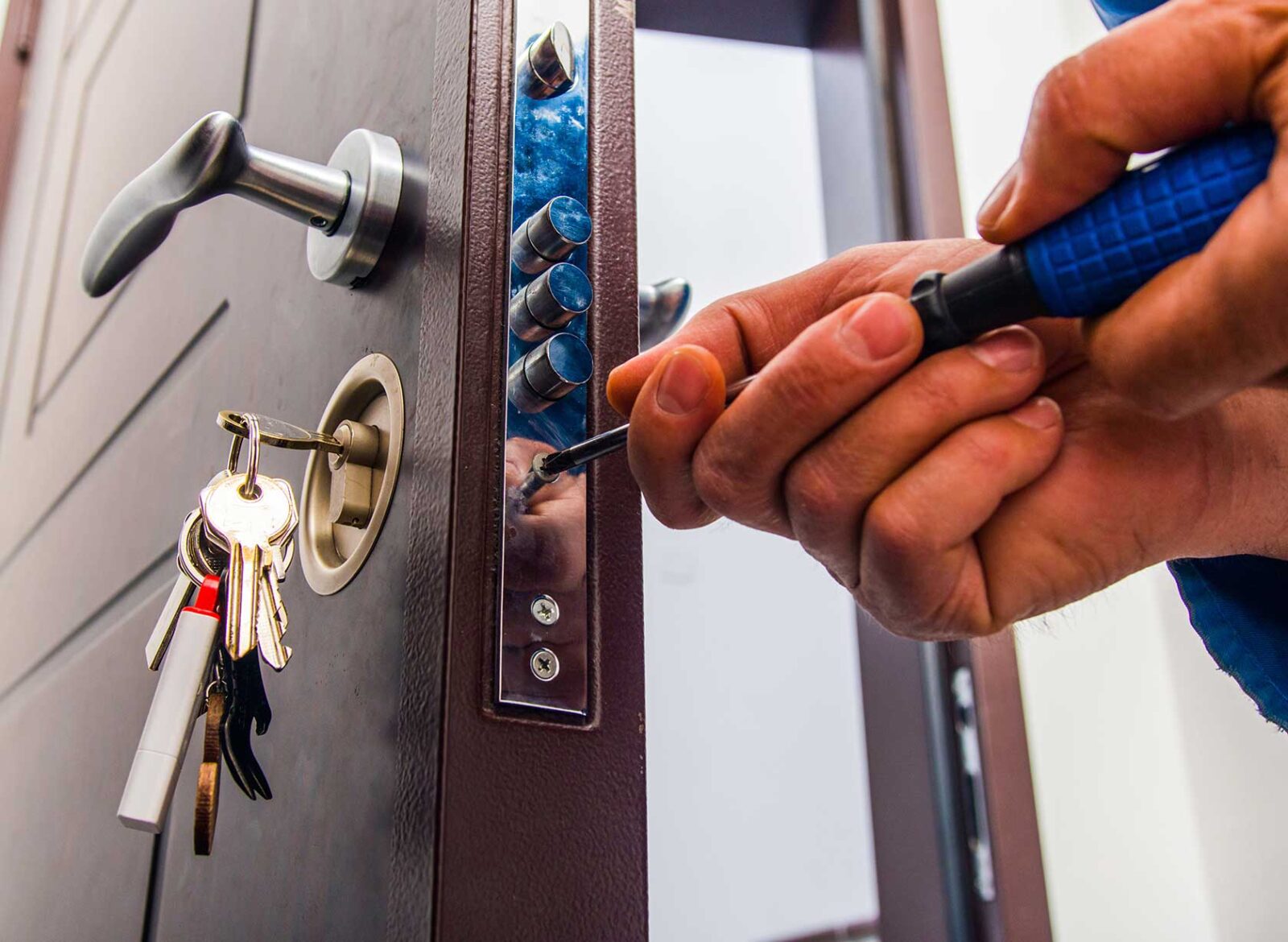
The Value of Professional Inspections in Lock Maintenance
While regular DIY maintenance is beneficial, the expertise of a professional locksmith can be invaluable. They possess the skills and tools to perform comprehensive inspections, identifying potential issues that might escape the untrained eye. Their insights can be particularly useful in assessing wear and determining the most effective maintenance strategies. Furthermore, they can offer advice on upgrades or replacements, ensuring your locks are not just functional but also provide optimal security.
Upgrading Locks
The world of lock technology is continually evolving, with newer models offering enhanced security and greater durability. If your locks are several years old, they might not provide the level of protection you need. Upgrading to modern locks can be a wise investment. These locks are designed to withstand picking, bumping, and drilling attempts, and are made from materials that are more resistant to wear and tear. A professional locksmith can advise on the best options for your needs, ensuring that your home remains secure against both physical attacks and the ravages of time.
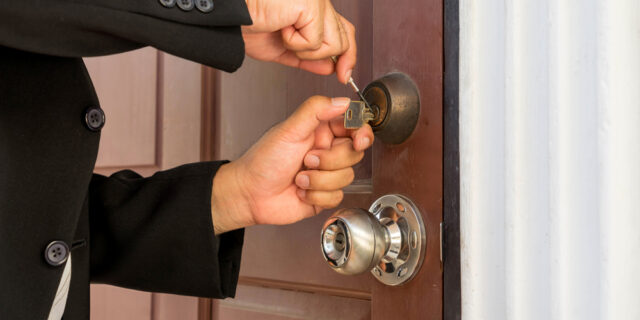
Dealing with Lockouts and Break-ins
Despite the best maintenance, emergencies like lockouts or break-ins can occur. In such situations, it’s crucial to rely on professional help. Attempting to force a lock open can cause significant damage, leading to more extensive repairs or the need for a replacement. A skilled locksmith can help you regain entry without damaging the lock and can assess whether the lock needs to be replaced for enhanced security. This is especially important following a break-in, where the integrity of the lock might be compromised.
Summary
In conclusion, lock maintenance is more than a mere chore; it is an essential practice in ensuring the security and safety of your home. Regular cleaning, proper lubrication, and timely professional inspections can significantly extend the lifespan of your locks. Moreover, being proactive in upgrading locks and addressing any signs of wear or damage can prevent the inconvenience and cost of unexpected failures. By investing time and effort in maintaining your locks, you not only ensure their smooth operation but also reinforce the security of your home. Remember, effective lock maintenance is not just about preserving a mechanical device; it’s about upholding the sanctity and safety of your personal space.









